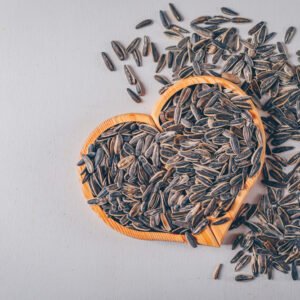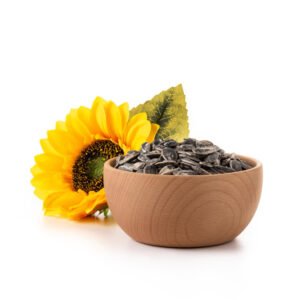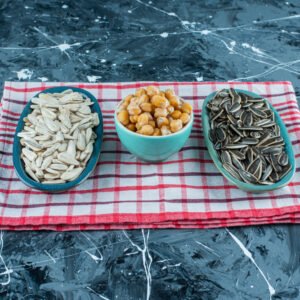When you walk into any Indian kitchen, you’ll find two sweeteners competing for attention: the familiar white sugar crystals and the golden brown blocks of cane jaggery. The debate between cane jaggery vs sugar has gained momentum as health-conscious consumers seek better alternatives to refined sweeteners. Let’s break down the facts to help you make an informed choice.
Understanding Cane Jaggery: The Traditional Sweetener
Cane jaggery, locally known as “gud,” represents one of the oldest forms of sweetening agents. Made from concentrated sugarcane juice, this unrefined sweetener retains most of its natural minerals and vitamins. The production process involves boiling fresh sugarcane juice until it solidifies into blocks, preserving the molasses content that gives jaggery its characteristic color and nutritional profile.
The color of cane jaggery ranges from light golden to dark brown, depending on the concentration and processing time. Unlike sugar, jaggery contains natural impurities that contribute to its nutritional value rather than detract from it.
How White Sugar Differs from Jaggery
White sugar undergoes extensive refining that strips away all natural nutrients. The refining process removes impurities and molasses, leaving behind pure sucrose crystals. This process creates a product that provides calories but lacks vitamins, minerals, or any beneficial compounds.
One teaspoon of white sugar contains approximately 16 calories and offers quick energy. The body absorbs refined sugar rapidly, causing spikes in blood glucose levels that can lead to energy crashes and increased hunger.
Cane Jaggery vs Sugar: Nutritional Breakdown
Here’s what makes cane jaggery stand out nutritionally:
- Mineral Content: Jaggery contains iron, magnesium, potassium, and phosphorus. A 100-gram serving provides essential minerals that support various bodily functions.
- Vitamin Profile: Small amounts of B-complex vitamins present in jaggery aid metabolism and energy production.
- Antioxidants: The molasses content contributes antioxidant compounds that help combat oxidative stress.
- Fiber Content: Unlike sugar, jaggery contains minimal fiber that can slow sugar absorption.
In contrast, white sugar offers zero nutritional value beyond calories. It lacks minerals, vitamins, antioxidants, or any compounds that benefit health.
Health Benefits of Choosing Cane Jaggery
Digestive Health Support
Jaggery activates digestive enzymes and helps cleanse the digestive system. The natural compounds stimulate bowel movements and reduce digestive discomfort after meals.
Blood Health and Iron Content
The iron content in cane jaggery supports hemoglobin production, making it beneficial for people with iron deficiency. This mineral content surpasses what refined sugar offers by significant margins.
Natural Energy Release
While both sweeteners provide energy, jaggery releases glucose more slowly due to its complex composition. This gradual release helps maintain steadier energy levels compared to the rapid spikes from white sugar.
Respiratory Benefits
Traditional medicine credits jaggery with clearing respiratory passages and reducing symptoms of cough and cold. The warming properties of jaggery make it a popular home remedy during winter months.
Glycemic Impact: Jaggery vs Refined Sugar
Both jaggery and sugar affect blood glucose levels, but their impact differs slightly. Jaggery has a marginally lower glycemic index compared to white sugar, meaning it causes a slower rise in blood sugar levels.
Research suggests that areas with consistent jaggery consumption show lower diabetes incidence rates. Scientists attribute this to the magnesium content in jaggery, which supports nervous system function and glucose metabolism.
People with diabetes should still consume jaggery in moderation, limiting intake to 1-2 tablespoons daily. Neither jaggery nor sugar should be considered “diabetic-friendly” without proper medical guidance.
Explore the uses, benefits, and smart tips of adding cane jaggery powder to your kitchen for a healthier lifestyle.
Caloric Comparison and Weight Management
Both sweeteners are calorie-dense. A 100-gram serving of cane jaggery provides approximately 375 calories, while the same amount of white sugar contains about 387 calories. The difference is minimal from a weight management perspective.
The key distinction lies in satiety. Jaggery’s complex flavor and nutrient content may help you feel satisfied with smaller amounts compared to the empty calories in refined sugar.
Processing Methods: Why It Matters
The production method creates the fundamental difference between these sweeteners. Jaggery production involves:
- Extracting fresh sugarcane juice
- Boiling the juice in large vessels
- Stirring continuously until concentration occurs
- Allowing the mixture to solidify naturally
Sugar production includes:
- Juice extraction from sugarcane
- Multiple refining stages
- Chemical treatments to remove impurities
- Crystallization processes that eliminate all natural compounds
This processing difference explains why jaggery retains beneficial compounds while sugar becomes nutritionally empty.
Environmental and Sustainability Factors
Cane jaggery production requires less industrial processing, resulting in a smaller environmental footprint. The traditional methods consume less energy and produce minimal waste compared to large-scale sugar refineries.
Many small-scale farmers can produce jaggery locally, supporting rural economies and reducing transportation costs. This decentralized production model contrasts with industrial sugar manufacturing that concentrates in large facilities.
Practical Usage: Substituting Sugar with Jaggery
When replacing sugar with jaggery in recipes, consider these guidelines:
- Baking: Use 3/4 cup of powdered jaggery for every cup of sugar. The moisture content may require slight recipe adjustments.
- Beverages: Dissolve jaggery completely in hot liquids before adding to drinks. The flavor will be richer and more complex than sugar.
- Desserts: Jaggery adds caramel-like notes that complement traditional sweets and modern desserts alike.
CMS Industries: Supporting Quality Agricultural Products
As a leading agricultural products manufacturer and exporter, CMS Industries understands the importance of quality sweeteners in global markets. Located in Kachchh, Gujarat, the company has spent over two decades connecting farmers with consumers who value nutritious agricultural products.
CMS Industries specializes in sourcing and supplying premium agricultural commodities, including various forms of natural sweeteners and organic products. Their commitment to quality and sustainable farming practices ensures that consumers receive products that meet international standards while supporting local farming communities.
The company’s expertise in agricultural exports extends to helping customers understand the benefits of traditional products like jaggery over highly processed alternatives. Through their extensive network, CMS Industries bridges the gap between traditional farming wisdom and modern nutritional needs.
Making the Right Choice for Your Health
Cane jaggery vs sugar isn’t just about choosing a sweetener; it’s about choosing a lifestyle approach to nutrition. While jaggery offers clear nutritional advantages over refined sugar, moderation remains crucial for both options.
Jaggery provides minerals, vitamins, and antioxidants that sugar lacks entirely. The slower glucose release and traditional production methods make it a more wholesome choice for those seeking natural alternatives.
For people managing diabetes, weight loss goals, or specific health conditions, consulting healthcare providers before making dietary changes is wise. Neither jaggery nor sugar should be consumed in unlimited quantities regardless of their nutritional profiles.
The choice between these sweeteners ultimately depends on your health goals, taste preferences, and commitment to consuming less processed foods. Jaggery represents a step toward more natural eating, while sugar offers convenience and neutral flavor in recipes.
Ready to explore premium agricultural products and natural sweeteners? Connect with CMS Industries to discover quality options that support both your health and sustainable farming practices.
Frequently Asked Questions
Is cane jaggery better than white sugar for diabetics?
Jaggery has a slightly lower glycemic index than sugar, but both affect blood glucose levels. Diabetics should limit jaggery to 1-2 tablespoons daily and consult doctors before including it in their diet regularly.
How much cane jaggery can I consume daily?
Health experts recommend limiting jaggery intake to 2-3 teaspoons daily. While it contains beneficial nutrients, jaggery is still high in calories and can contribute to weight gain if consumed excessively.
Does jaggery help with iron deficiency anemia?
Yes, cane jaggery contains iron that supports hemoglobin production. Regular consumption can help address mild iron deficiency, though it shouldn’t replace medical treatment for severe anemia conditions.
Can I substitute jaggery for sugar in all recipes?
Jaggery works well in most recipes but may alter flavor and texture. Use 3/4 cup powdered jaggery per cup of sugar, and expect richer, caramel-like flavors in your finished dishes.
Why does jaggery cost more than regular sugar?
Jaggery production involves less mechanization and smaller-scale operations compared to industrial sugar manufacturing. The retention of nutrients and traditional processing methods contribute to higher production costs and pricing.





